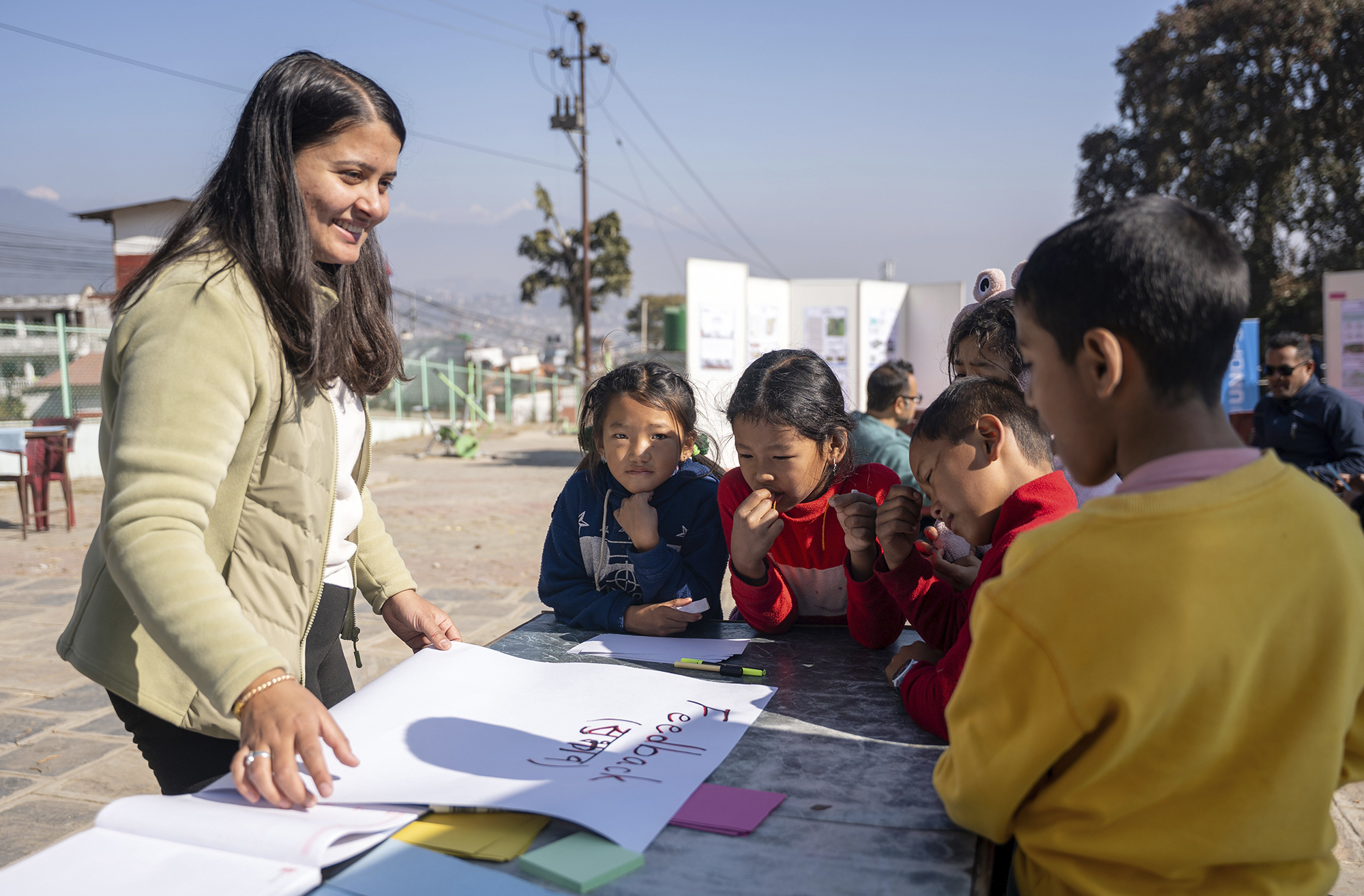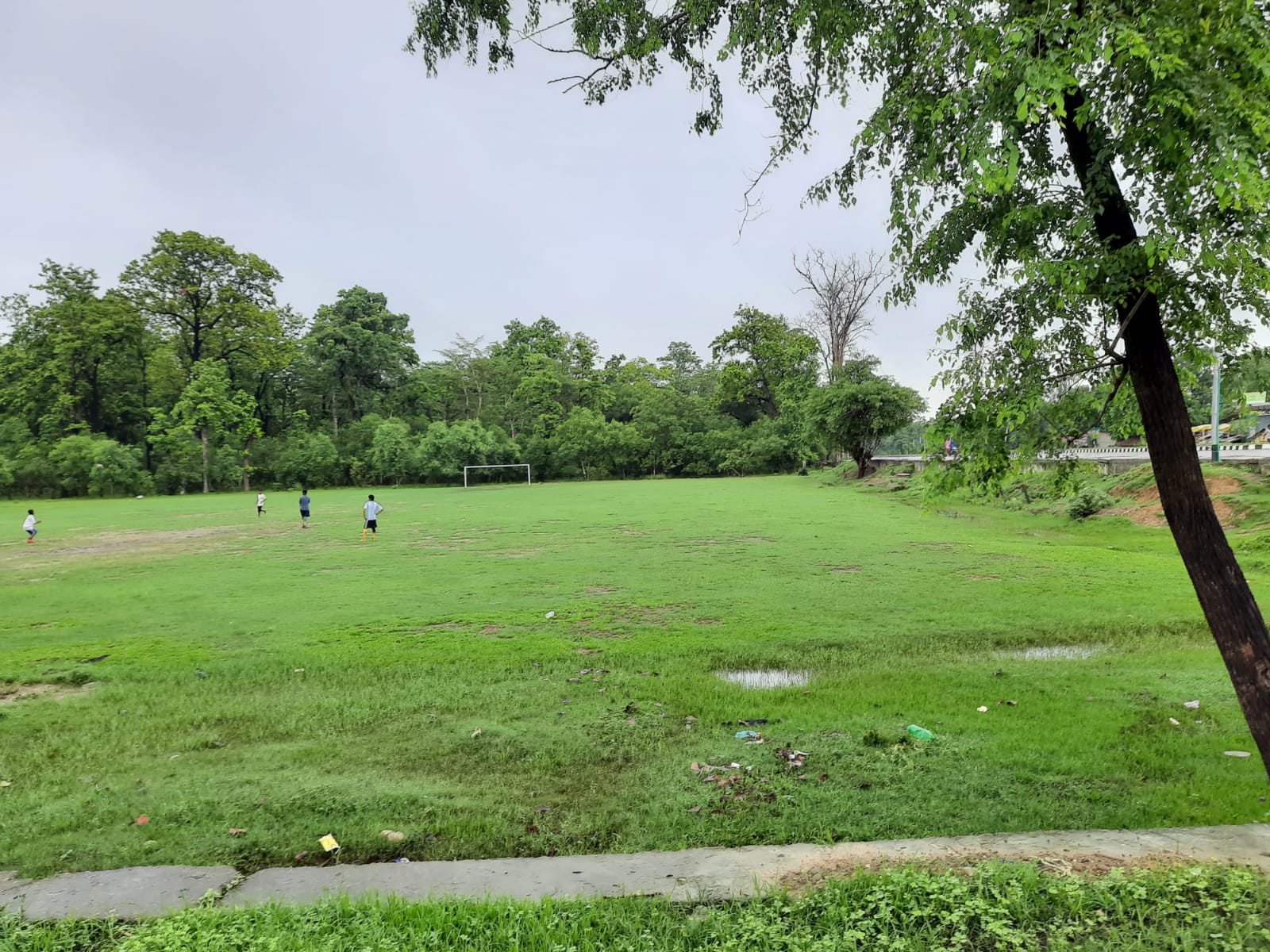This article is one in a series profiling new members of the Cities Alliance partnership.
Building partnerships for sustainable, inclusive urbanisation
[4 March 2016] -- Cities Alliance is delighted that the United Nations Development Programme (UNDP) has reengaged with the partnership, formally joining as an Associate Member at the end of 2015. UNDP was previously an Associate Member in the beginning of the partnership, from 1999-2003.
The organisation’s decision to strengthen its relationship with Cities Alliance comes as UNDP is focusing on a new approach to cities. Its Strategic Plan for 2014-2017 recognises urbanisation as one of the major drivers influencing development, and one that will have significant implications across all of its areas of work.
UNDP is also facing a growing demand from government and local partners for urban-related development projects. It currently has an extensive portfolio of urban-related programming underway in more than 60 countries, and anticipates that demand will increase significantly in the coming years.
As a result, UNDP is seeking partnerships and support to help meet this demand for urban programming, at the same time refining its approach to making urban and local development more sustainable and inclusive. With a diverse network of members and partners, Cities Alliance is a very attractive platform for UNDP to broaden its collaborations.
In turn, UNDP has a lot to offer the Cities Alliance partnership. It is among the few global organisations well positioned to offer a truly integrated, multi-dimensional perspective on urban issues that links fundamental concepts such as ‘sustainability’, ‘resilience’, and ‘inclusiveness’ in addressing urban development needs.
Like Cities Alliance, UNDP is an excellent facilitator and intermediary among urban actors. It galvanises, initiates, and convenes various stakeholders; advocates and advises; supports normative international frameworks; and builds capacities so that partners can act more effectively on their own behalf. In complex and fast-moving urban environments, UNDP provides important feedback loops from diverse sets of urban development actors to modify and enrich its policy programmes.
Last but not least, UNDP has a significant urban footprint around the globe, with a presence in virtually every capital of the developing world. Each UNDP office is a critical resource of knowledge, experience and technical expertise. There are very few organisations – if any – with such breadth of practical experience and knowledge.
A new strategy for cities
UNDP has a long history of work in cities and towns across all of its major areas of work – poverty reduction, governance, environment, climate change, disaster risk reduction, gender equality, and health. Many of these programmes have been focused on individual sectors, with limited recognition of the interlinkages that mark the urban context.
Currently, UNDP is defining a new strategy for cities that takes a more integrated, holistic approach to urban issues. In February Cities Alliance approved a new activity to support these efforts. Called “A Stronger Response to Cities and Urban Poverty in UNDP’s Strategy and Programmes,” the activity will apply the Cities Alliance partnership’s experience and expertise to support UNDP as it develops its strategy.
UNDP in Action
UNDP has an extensive portfolio of urban-related programming underway in more than 60 countries. Here are three examples that are especially relevant to Cities Alliance’s interests and activities:
A National Urban Policy in Bangladesh
In Bangladesh, UNDP supported municipal leaders to strengthen the livelihoods of millions of urban slum dwellers living on the fringes of cities, often without secure tenure or safe neighbourhoods. It worked with a wide range of stakeholders – from national ministries to city governments and civil society organisations – to develop the country’s first National Urban Policy. For a country urbanising as fast as Bangladesh, the policy will be essential in providing a strategic, coherent, and collaborative vision for its urban future.
Sustainable transport in Egypt
In Egypt, UNDP is developing a project aimed at reducing the growth of energy consumption and related greenhouse gas emissions of Egypt’s transport sector. At the same time, the organisation is mitigating local environmental problems such as deteriorated urban air quality and congestion through various initiatives:
-- Integrating transport services for Greater Cairo and its satellite cities on the basis of public-private partnerships;
-- Promoting non-motorised transport in medium-sized provincial cities;
-- Introducing new traffic demand management measures; and
-- Improving energy efficiency of freight transport.

UNDP is defining a new strategy for cities that takes a more integrated approach to city issues. Photo: UNDP
Decentralisation in Guatemala
UNDP partnered with local officials to create a Metropolitan Development Programme for the Municipality of Guatemala, an initiative that began in July 2004 to strengthen decentralisation and independence of local government. The programme supports the promotion of inclusive development and democratic consolidation within the municipality. It also consults around themes such as the environment, public safety, land, or issues related to disability, including development.
The work of the Municipality of Guatemala promotes the expansion of mechanisms for citizen participation and social commitment to foster a sense of belonging to the local government. On a broader level, it aims to improve the living conditions of all residents in the capital, starting with the underprivileged.
The project also seeks to strengthen institutional relations and cooperation to promote an ongoing, sustained process that will allow the municipality to undertake institutional transformation and modernisation in the medium term.
|
UNDP’s View of Sustainable Cities |
“We strongly value the assistance and technical expertise Cities Alliance offers in engaging in urban programming.” -- UNDP




